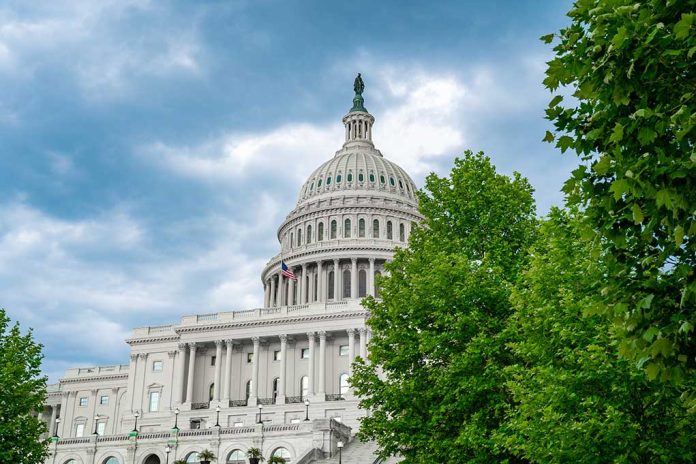
House lawmakers have introduced the Drone Espionage Act to criminalize shooting footage of military sites under the 1917 Espionage Act, with violators facing up to 10 years in prison.
Key Takeaways
- Bipartisan legislation would criminalize drone video surveillance of US military sites, closing a potential loophole in the 1917 Espionage Act that prohibits photography but doesn’t specifically mention videography.
- The bill comes amid concerns from lawmakers about bad actors spying on military sites using drones
- Proposed penalties include fines, imprisonment up to 10 years, or both for those capturing unauthorized video footage of defense sites.
- Reps. Jen Kiggans (R-Va.) and Don Davis (D-N.C.), both military veterans and Armed Services Committee members, introduced the legislation.
- The act would give federal prosecutors new tools to prosecute foreign agents gathering intelligence via drone technology.
Closing a Loophole
The Espionage Act of 1917, created during World War I, prohibits taking photographs of classified national defense sites but contains no provisions regarding video recording. This century-old legislation never anticipated the advent of modern drone technology, which some lawmakers are now concerned could allow foreign agents to conduct aerial surveillance with relative ease. Representatives Jen Kiggans (R-Va.) and Don Davis (D-N.C.) have proposed amending Section 793 of the Espionage Act to explicitly include “video” among the criminal information-gathering methods prohibited at sensitive military locations.
Bipartisan legislation has been introduced in the House to safeguard #US defense sites from video surveillance by #Drones operated by foreign agents, … https://t.co/lqgCyv3zOa
— The Epoch Times – China Insider (@EpochTimesChina) April 21, 2025
Recent Incidents
Several recent cases involving Chinese nationals operating drones near critical defense sites have heightened concerns about foreign surveillance operations. In one prominent case, Chinese citizen Fengyun Shi was sentenced for flying a drone over Vandenberg Space Force Base in California and taking photographs.
Another individual, Yinpiao Zhou, faced similar charges related to drone surveillance activities. These incidents have occurred amid a broader pattern of mysterious drone sightings reported in military-heavy regions like Virginia’s Hampton Roads area and along the East Coast. While the White House has said some drone activities were authorized or lawful, lawmakers remain concerned about the potential for foreign intelligence gathering.
Definitions and Enforcement Measures
A statement from Kiggans carefully defines “sensitive national defense sites” to include military bases, shipyards, naval vessels, aircraft, missile sites, nuclear facilities, space operations centers, and other classified defense-related locations. Anyone caught taking unauthorized video footage of these sites could face severe penalties including fines, imprisonment for up to 10 years, or both. The bill provides federal prosecutors with more effective tools to prosecute foreign agents using drone videography for espionage purposes. This approach aims to create a stronger deterrent against increasingly sophisticated surveillance methods while bringing espionage laws into alignment with modern technological realities.
Rising Concerns About Chinese Intelligence Gathering
The Drone Espionage Act comes amid heightened tensions between the United States and China, with American intelligence agencies warning of increasingly aggressive Chinese espionage operations. Beyond drone surveillance, security experts have documented other concerning activities, including attempts by Chinese nationals to gain physical access to military installations and the purchase of properties near sensitive sites. As drone technology becomes more sophisticated and accessible, lawmakers are pushing to update legal frameworks that were created long before such capabilities existed.
Sources
- Lawmakers propose bill that makes it a crime to shoot drone video footage of military sites
- Kiggans Cracks Down on Drone Surveillance of U.S. Defense Sites
- House Lawmakers Introduce Legislation to Criminalize Drone Filming of US Military Sites













